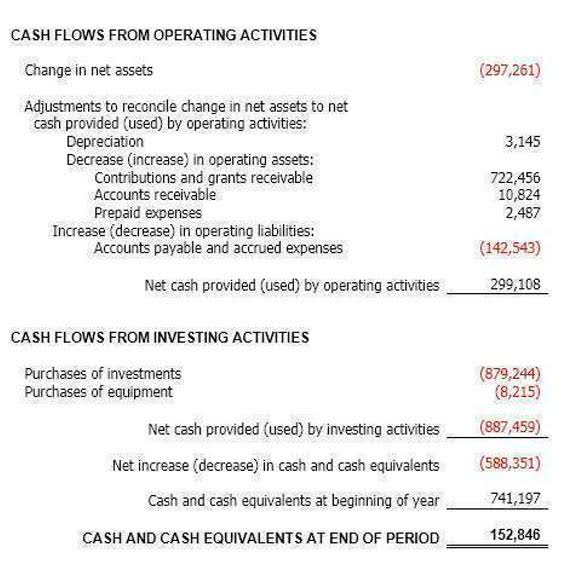Define the Debit and Credit Accounting Terms: A Clear Explanation

A company’s management team’s talent and expertise can be a crucial driver of its success. A talented and experienced management team makes intelligent decisions, navigates challenges, and keeps the company moving. The value of managerial and executive talent can be challenging but essential to a company’s goodwill.
- In accounting, these transactions are recorded in the ledger, which is a book that contains all the financial transactions of a business.
- Objective factors include the company’s financial performance, market position, and growth potential.
- It is the most basic form of equity and gives shareholders the right to vote on important company decisions.
- The terms are used to indicate the increase or decrease in an account’s balance.
- This amount should include any prices paid in cash, shares, or other assets.
- In a private company, goodwill has no predetermined value prior to the acquisition; its magnitude depends on the two other variables by definition.
Goodwill in Balance Sheet
Note – Additionally, the impairment loss of goodwill shall also be written off from the books of accounts if goodwill is impaired/devalued. online bookkeeping Thus, Debit the impairment loss to the profit & loss account as well as deduct the same from the amount of goodwill (credit it to the goodwill account). Also, Goodwill is a long-term intangible asset that does have a separate existence from that of the business which means that it cannot be sold separately in the market like other assets.
Accounting Outsourcing: How to Hand off Your Financial Tasks (With Recommendations)
- When dealing with stocks and bonds, it is important to understand how these assets are recorded in an accounting system.
- Goodwill is an intangible asset not backed by tangible assets or cash flows.
- Goodwill is a culmination of tangible and intangible assets, reflecting the fundamental aspects of a business that make it valuable and distinguishable in the marketplace.
- In accounting, goodwill refers to a unique intangible asset that arises when one company acquires another for a price higher than the fair market value of its net identifiable assets.
- Goodwill also plays an essential role in reducing the risk of stock price volatility.
- Conversely, negative goodwill, also referred to as a ’bargain purchase’, comes up when the acquisition’s purchase price is lower than the fair market value of its net identifiable assets.
Essentially, it represents the value of a company’s brand, customer relationships, and overall reputation, which are not easily quantifiable. The value of goodwill is calculated using a combination of subjective and objective factors. The subjective factors include the company’s reputation, brand recognition, customer loyalty, and management expertise.
Valuation of a Company
Under U.S. GAAP and IFRS, goodwill is never amortized, because it is considered to have an indefinite useful life. If the fair market value goes below historical cost (what goodwill was purchased for), an impairment must be recorded to bring it down to its fair market value. However, an increase in the fair market value would not be accounted for in the financial statements.

The fair value is usually determined by a professional appraiser or accountant, who considers the present value of the assets acquired minus the value of the liabilities assumed. A positive reputation attracts customers, investors, and partners, which helps to expand the company’s operations and increase its market share. This growth strategy provides a competitive advantage to the company and positions it for long-term financial success. Goodwill also plays an essential role in reducing the risk of stock price volatility. Companies with a positive reputation and high goodwill are perceived to have a lower risk of losing value. In addition, investors are more likely to purchase stocks from companies with a strong reputation in the market.

The goodwill represented the value of YouTube’s burgeoning user base, its brand recognition, and the potential for future growth in the online video market. In accounting, goodwill is an increase in value over the Retail Accounting company’s assets minus its liabilities. Assets that are non-physical, such as solid customer relationships, brand recognition, or excellence in management, are considered tangible.
When do we use debit and credit for revenue and liability accounts?
- Then it needs to be reduced by the amount the market value falls below book value.
- Goodwill in business is an intangible asset that’s recorded when one company is purchased by another.
- It arises over a period of time due to the good reputation of the business.
- Financial management software offers robust automation capabilities, transforming the intricate process of accounting calculations into a streamlined procedure.
- When a business is acquired, it is common for the buyer to pay more than the market value of the business’ identifiable assets and liabilities.
- Accountants must be meticulous in their work to ensure that every transaction is recorded correctly and accurately.
- 3) Capitalization Method – Under this method, goodwill is calculated by computing the average or super profit and using the real capital invested in the business.
Creating goodwill can take a number of forms, from implementing customer appreciation programs to providing extra services. Some examples of how goodwill with customers can benefit your business follow. For calculating Goodwill, we need the values of the Purchase price of the company, Fair market value of assets, and Fair market value of liabilities. Yes, goodwill is an intangible asset and only arises from acquiring other companies. To illustrate, goodwill in accounting meaning let’s use our previous example from AstraZeneca Corporation.

What is valuation, and why is there a need for valuation?

Developing inherent goodwill is an internal process that occurs over time as a result of reputation. Goodwill may seem like an advanced concept for many small businesses, but as yours grows, you might find yourself acquiring other companies to expand your operations and offerings. When that time comes, recognizing goodwill on your balance sheet will likely become a key part of accounting for the value of those acquisitions. Goodwill has no resale value, can’t be used as collateral for loans, requires highly subjective valuations, and depends heavily on qualitative factors to determine its value.


 Bedienpulte
Bedienpulte Industrie PC
Industrie PC Tablet PC
Tablet PC Industrie Monitore
Industrie Monitore Industrietastaturen
Industrietastaturen Ersatzmonitore
Ersatzmonitore LED-Anzeigen
LED-Anzeigen







